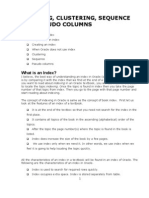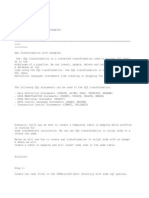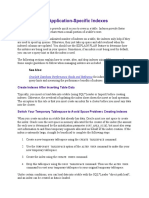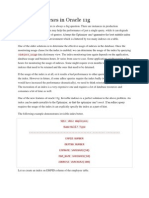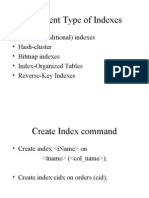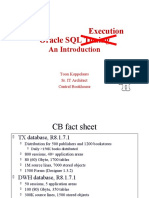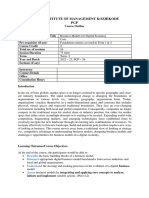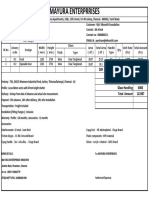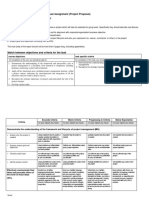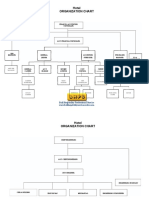0% found this document useful (0 votes)
24 views16 pagesWhy Isn't Oracle Using My Index
The document discusses various reasons why Oracle might not use an index during query execution, such as small table size, low selectivity, function-based index issues, data skew, NULL values, implicit type conversion, OR conditions, CBO decisions, index invisibility, and parallel execution. It provides detailed demos for each scenario, explaining the underlying issues and offering solutions to ensure that Oracle utilizes indexes effectively. The conclusion emphasizes the importance of understanding these factors for optimizing query performance.
Uploaded by
quanwenzhaoCopyright
© © All Rights Reserved
We take content rights seriously. If you suspect this is your content, claim it here.
Available Formats
Download as DOCX, PDF, TXT or read online on Scribd
0% found this document useful (0 votes)
24 views16 pagesWhy Isn't Oracle Using My Index
The document discusses various reasons why Oracle might not use an index during query execution, such as small table size, low selectivity, function-based index issues, data skew, NULL values, implicit type conversion, OR conditions, CBO decisions, index invisibility, and parallel execution. It provides detailed demos for each scenario, explaining the underlying issues and offering solutions to ensure that Oracle utilizes indexes effectively. The conclusion emphasizes the importance of understanding these factors for optimizing query performance.
Uploaded by
quanwenzhaoCopyright
© © All Rights Reserved
We take content rights seriously. If you suspect this is your content, claim it here.
Available Formats
Download as DOCX, PDF, TXT or read online on Scribd
/ 16



